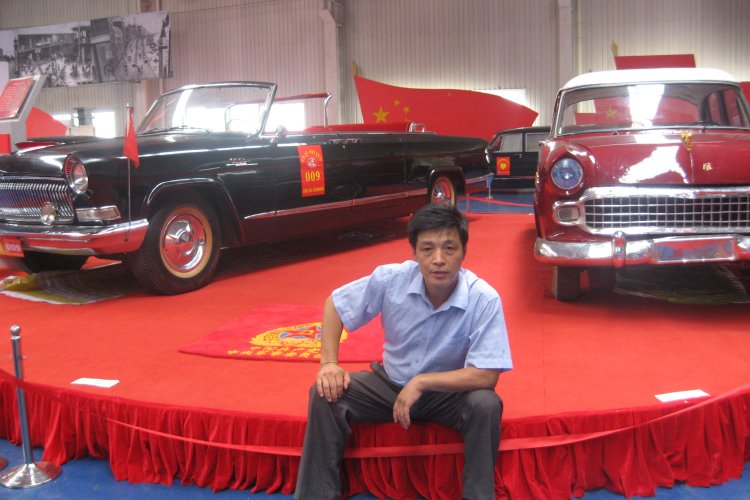China in Africa: A Dragon’s Gift?
Depending on who you believe, China is helping Africa down the path of development in a way the West never has, or else they’re simply the latest in a long line of colonial and neo-colonial exploiters of the world’s poorest continent. Either way, China’s presence in Africa is nothing new – Associate Professor of International Development at American University Deborah Brautigam has been researching China-Africa relations long before it occurred to most academics and policy-makers to look.
Prior to her talk at the Bookworm tomorrow (Tuesday, July 20), Christine Laskowski talked to Professor Brautigam about her new book The Dragon’s Gift: The Real Story of China in Africa.
How and when did the relationship between China and Africa first become an area of interest for you?
Before going to graduate school to study international relations and development, I spent almost four years in Asia, some of that doing intensive study of Mandarin in Hong Kong and Taiwan. So I started out as a scholar of China, and I went to Africa in 1983 to learn about Chinese aid in the field.
In the book you say, “China never left [Africa], we just stopped looking,” and your book outlines the long-term strategy China has developed for its Africa relations. How did we miss it?
First, during the 1960s and 1970s, the West was very focused on China as an actor in the Cold War, and as an potential agent of communist infiltration. But Beijing was a minor actor in Africa compared with the Soviet Union and Cuba, so we tended to ignore them after the 1970s. Second, China’s aid program remained small, and modest. In West Africa, for example, there were hardly any signposts for Chinese projects, which were often far from the main roads. Some noticed the stadiums and office buildings that the Chinese were building in towns, and some commented on the increase in Chinese exports to Africa, and the slow rise in the presence of Chinese construction companies. But until the turn of the millennium, it happened so gradually that people who weren’t looking for it didn’t even see it.
Unlike Western aid workers, the Chinese weren't running around in white SUVs with “Chinese Aid” emblazoned on the side.
Your book focuses a lot on how the amount of Chinese “aid” has been misrepresented in the foreign media because we’re working with different understandings of what constitutes aid. What are the key differences?
“Aid” is a generic term, and it could mean anything. But because of this, the members of the Organization for Economic Cooperation and Development, which groups the industrialized countries, developed strict criteria for what qualifies as “official development assistance” (ODA) and what does not. This enables us to compare one country’s ODA with another’s.
The Chinese have their own definition of official development assistance. It’s close to ours, although they don’t include scholarships (we do) and they include only the interest subsidy for concessional loans (we include the entire face value of the loan as “ODA,” even though it has to be repaid).
Reporters and others often call Chinese loans “aid” even if they do not meet the terms of ODA (and even if the Chinese don't call them aid). They then compare these loans with ODA from the West, which is easily available.
Frankly, it's hard to blame the media for this: the Chinese government is equally at fault. They could easily publish their official aid figures, but they don't, even though they are becoming more transparent on a case by case basis.
What makes a country “developed?”
Most people think it has something to do with standard of living, as reflected in economic and social indicators. Both the World Bank and the United Nations have separate sets of indicators which can give us some idea of that standard of living.
I prefer to see all countries as “developing” – it's a process. But we can say more specifically which countries are not yet industrialized, or which have not yet had a “demographic transition” (when the birth rate falls to the replacement level, about 2 births per woman).
For Western donors, the aid trend recently has been a focus on poverty reduction. Has China's approach, in your opinion, been more effective in terms of raising African countries out of their "underdeveloped" status?
China’s approach at home does focus on a more simple recipe for poverty reduction: create jobs, build infrastructure, foster production, import foreign technologies, upgrade. I'm not sure yet that we can say China’s approach in Africa has been more effective, but I do think it has more potential for economic development than the poverty reduction approach adopted by the West recently. We seem to have forgotten about the critical importance of employment-generation, and formal sector jobs, and commercial production.
You talk a lot about China’s aid being influenced by its own experience as an aid recipient. Could you tell us a little more about when China was an aid recipient and how much assistance they received?
Aid was never a big factor in China's development. The Soviet Union gave China quite a bit of assistance in the 1950s but this ended with the Sino-Soviet split in the early 1960s. Starting in the late 1970s, Japan and the West became donors, and the World Bank entered in the 1980s. This all helped as a catalyst of ideas and a way to transfer foreign technologies, but the total amounts were never very high as a percentage of China’s economy. China is still a recipient of aid, although many donors are winding down their programs because of China’s rising income levels.
You note that both Western and Chinese aid projects in Africa run into trouble once the donors leave. Is there a broad cultural component to this in terms of a work ethic in Africa? Perhaps a culture of corruption and cronyism that's so embedded that it's hard to overcome no matter who's supplying the assistance?
I think the problem is more basic. Aid projects often fail when they are designed by outsiders, and not truly conceived by local people who are looking for assistance to carry their own ideas and plans forward. The Chinese realize this, which is why in production related “assistance” (maybe not “ODA”) they are now trying to do joint ventures that involve Chinese companies which will have an incentive to carry the projects forward after the assistance ends. We see this in the agricultural demonstration centers and the overseas economic zones in Africa.
You point out that China's aid staff responsible for Africa is incredibly small, while USAID employs thousands. China is criticized for using Africa for its resources only to boost its own industry, but couldn't the same criticism be made of Western donors, who maintain large number of foreign staff in well-paid aid jobs?
Well ... to be fair, donors like USAID have been increasingly employing host country nationals… But despite all these local hires, the US has not untied its aid very significantly, and is hamstrung in doing this by Congress: things like the Fly America Act, PL-480 food aid legislation, all require the use of US goods and services.
Would it be appropriate to consider China's aid approach in Africa as a form of commerce colonialism? Do you feel China's creating dependency with its business-oriented aid, or is it really a win-win situation?
Business-oriented aid is less likely to create dependency. It’s more likely to boost tax revenues as companies invest and produce. Until African countries gain control of their own revenues and expenditures, they are not going to gain control of their development. Yes, China’s engagement is about benefiting Chinese interests. But in the course of this, African interests can also benefit. It depends on the terms, the degree to which African governments enforce their own social and environmental standards, the degree to which African young people can find jobs and gain skills with Chinese companies. This varies across companies and sectors. The jobs are not going to be cushy; they usually won't be at Western standards, but at Chinese and African standards. But it is happening much more than most people from the West realize. And this is likely to continue.
Deborah Brautigam will be giving a talk on The Dragon’s Gift: The Real Story of China in Africa at the Bookworm at 7.30pm on Tuesday, July 20. RMB 50/30 (members). The book is also available for purchase at The Bookworm or on Amazon.
Related stories :
Comments
New comments are displayed first.Comments
![]() MrGe
Submitted by Guest on Mon, 07/19/2010 - 11:29 Permalink
MrGe
Submitted by Guest on Mon, 07/19/2010 - 11:29 Permalink
Re: China in Africa: A Dragon’s Gift?
Kindle version: $16.47? Are you out of your mind?
Validate your mobile phone number to post comments.






